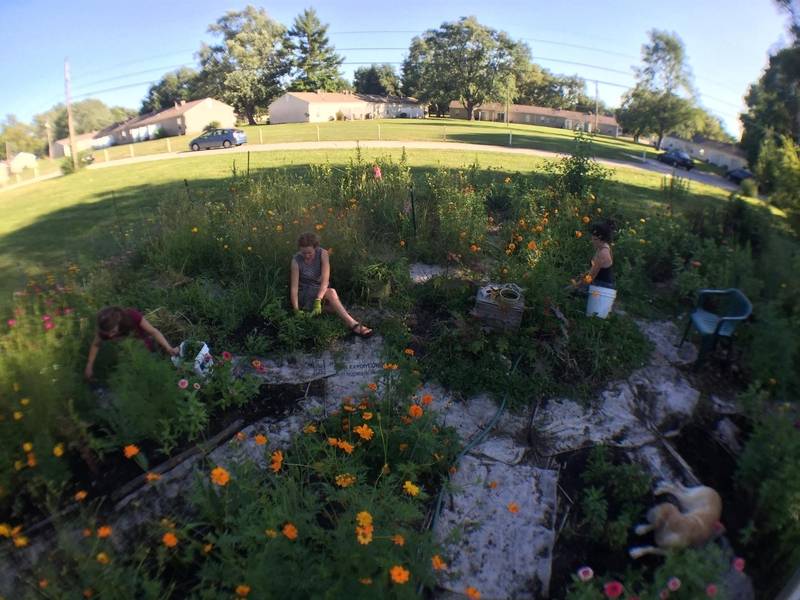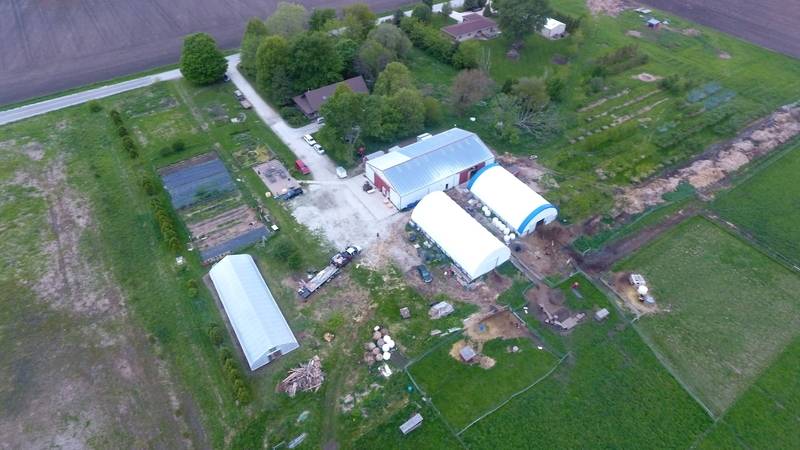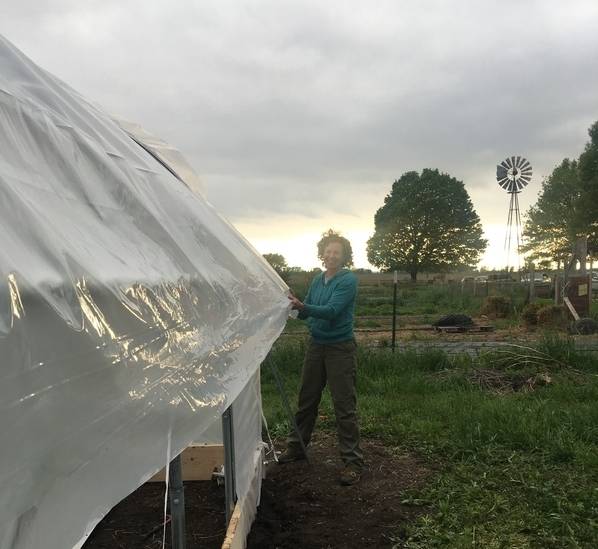Over the past several years, the words “organic”, “carbon footprint”, “locally grown” have been become regular parts of the vernacular, but usually we’re talking food…meats, produce, herbs, eggs, etc. We’re fortunate to have access to great locally grown and raised food here through farmer’s markets, our local co-op and natural foods stores, and small local farms. Delight Flower Farm in north Urbana is devoted to adding fresh cut flowers to the products that we can purchase locally with the knowledge that they’ve been grown using environmentally friendly practices. And now, they have an exciting addition to their farm that will make a huge impact on their growing season and ability to get fresh flowers into the hands of local businesses and consumers.
Delight Flower Farm operates adjacent to Prairie Fruits Farm and Creamery, leasing land to grow fresh cut flowers for local businesses, weddings, and CSA members. According their website, “Our method of farming is a marriage of organic gardening and experimenting in more integrated styles of cultivating crops and permaculture. We think of this farm as just one part of a many tiered system of human, animal, and plant ecology.”

I spoke with Maggie Taylor, one of the three women who operate Delight, and she gave me some great background on the cut flower industry, including the fact that 80% of flowers that we purchase in the U.S. are imported from other countries, and of the 20% grown in the U.S., three quarters of them come from California. Talk about carbon footprint! Taylor shared with me the virtues of buying your flowers locally.
“For customers, the flowers are as fresh as they can get: harvested just hours before they are for sale, so these flowers last a long time in the vase and not flown in from long distances. Our flowers are grown without pesticides and herbicides; so there’s no reason not to stick your nose down in them and take in the floral aromas! Buying our flowers helps put money back into the local economy, supports a small sustainable farm, and a women-owned business. We treat our workers fairly, pay well, and use organic farming methods. We value both taking care people and the environment in this industry where these values aren’t common.”

Last week was quite impactful for the farm. They’ve added something called a high tunnel (seen in the bottom left of the above picture), and it was constructed on the farm last week by a company called Nifty Hoops, out of Michigan. Here in Illinois, we obviously have a very specific growing season, hence the importing of flowers from other places. This high tunnel will act like a greenhouse, therefore extending the in-ground growing season by 4-6 weeks on either end. Taylor is excited about the opportunities that this will offer the farm.
“The new high tunnel is a real “game-changer” for us because it enables us to extend our growing season so we can grow more months of the year- start plants earlier in spring and harvest/plant flowers later in the fall (think Sunflowers and Mexican Sage in October and November!) In addition to extending the length of our season the high tunnel expands the space in which we grow, which mean more local flowers available for our community (through our CSA, grocery stores, weddings, edible flowers, business subscriptions, etc). As a result this business becomes more financially sustainable. Which makes it less risky for us to leap into full-time farming, which is happening very soon!”

The project was partially funded through the Natural Resources Conservation Service, a division of the USDA, and their Environmental Quality Incentives Program. Adam Wyant, a District Conservationist for the NRCS, describes the program as providing “financial and technical assistance to agricultural producers in order to address natural resource concerns and deliver environmental benefits such as improved water and air quality, conserved ground and surface water, reduced soil erosion and sedimentation or improved or created wildlife habitat.” Delight applied for the grant in October, and according to Taylor it was a “long, laborious process” that involves a “rigorous ranking system”. The rest of the funding came through a KIVA loan, where community members could show their support for the farm with their donations.
Here’s a super cool time lapse video of the tunnel construction last week, provided by Nifty Hoops.








